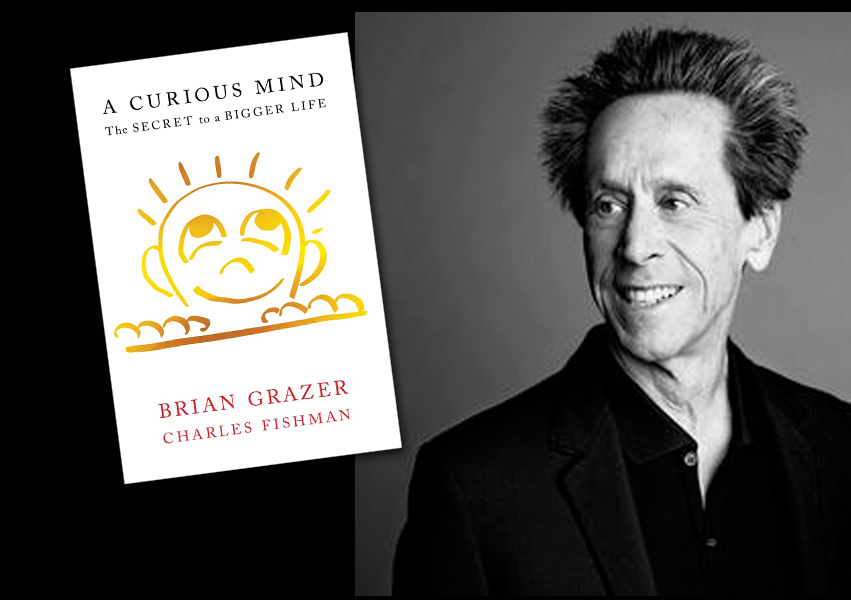I recently listened to Brian Grazer’s A Curious Mind, diving into his life and career as a film producer for such movies as A Beautiful Mind and Apollo 13, and what he claims as the source of his success: curiosity. Here are the excperts that stuck out to me as I listened.

More than intelligence or persistence or connections, curiosity has allowed me to live the life I wanted. Curiosity is what gives energy and insight to everything else I do. (2:15)
Curiosity has been the most valuable quality, the most important resource, the central motivation of my life. I think curiosity should be as much a part of our culture, our education, our workplaces, as concepts like creativity and innovation. (3:20)
Life isn’t about finding the answers, it’s about asking the question. (7:55)
We are all trapped in our own way of thinking. Trapped in our own way of relating to people. We get so used to seeing the world our way, that we come think the world is the way that we see it. (1:13:45)
Nothing is as common as innovation I come up with that I think is brilliant and you think is dumb. (1:40:15)
Unlike creativity and innovation though, curiosity is by its nature more accessible, more democratic. Easier to see, and also easier to do. (1:40:25)
Here’s the secret that we don’t seem to understand, the wonderful connection we’re not making. Curiosity is the tool that sparks creativity. Curiosity is the technique that gets to innovation. Questions create a mindset of innovation and creativity. Curiosity presumes that there might be something new out there. Curiosity presumes that there might be something outside our own experience out there. Curiosity allows the possibility that the way we’re doing it now isn’t the only way, or even the best way. (1:41:00)
One of the concepts that really animates me is what I think of as mastery. I want to know what it takes to really master something. Not just to be a police officer, but to be the chief. Not just to be an intelligence agent, but to be the head of the CIA. (1:55:40)
We’re now firmly in the era of the billion dollar film franchise, and the billion dollar acting career. (2:01:25)
Curiosity leads to storytelling, and storytelling inspires curiosity. The exact same dynamic works with curiosity and persistence. Curiosity rewards persistence. If you get discouraged when you can’t find the answer to a question immediately, if you give up at the first no, then your curiosity isn’t serving you very well. (2:48:10)
As inevitable as Dr. Seuss’ appeal seems now, Mulberry St. was rejected by 27 publishers before being accepted by vanguard press. What if Geisel had decided that 20 rejections were enough for him? Or 25? Imagine childhood and reading without Dr. Seuss. (2:55:40)
I ask questions. What’s the talk supposed to be about? What’s the best possible version of the talk? What do the people coming to this event expect to hear? What do they want to hear in general? What do they want to hear from me specifically? And who is the audience? (2:57:40)
Curiosity isn’t necessarily about achieving something, about driving towards some goal. Sometimes it’s just about connecting with people. Which is to say curiosity can be about sustaining intimacy. It’s not about a goal, it’s about happiness. (4:05:45)
For me, the most valuable kind of curiosity is the kind where there isn’t a specific question I’m trying to get the answer to. The most valuable kind of curiosity is the truly open hearted question. Whether to a Nobel Laureate, or the person sitting next to you ta a wedding. (4:55:20)
I don’t have any idea where good ideas come from. But I do know this: the more I know about the world, the more I understand about how the world works, the more people I know, the more perspectives I have, the more likely it is that I’ll have a good idea. The more likely it is that I’ll understand the good idea when I hear it. The less likely I’ll agree that something is good enough. (4:57:10)